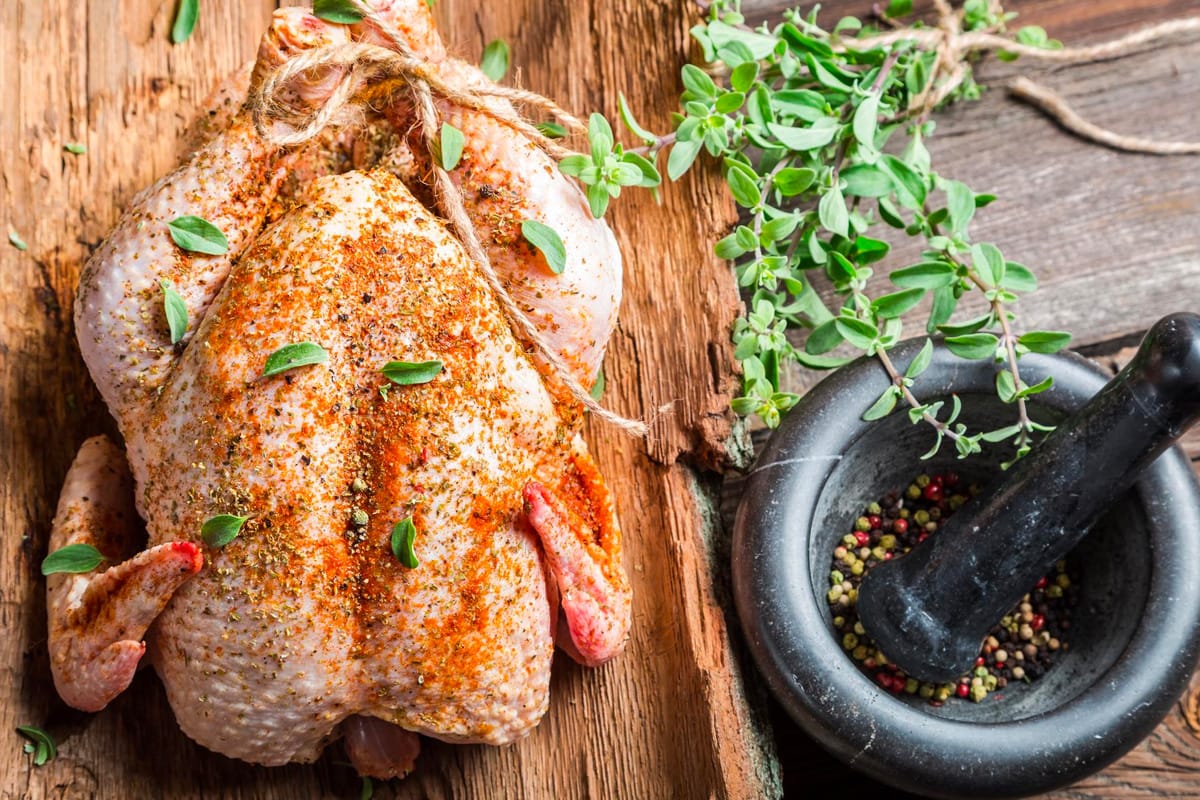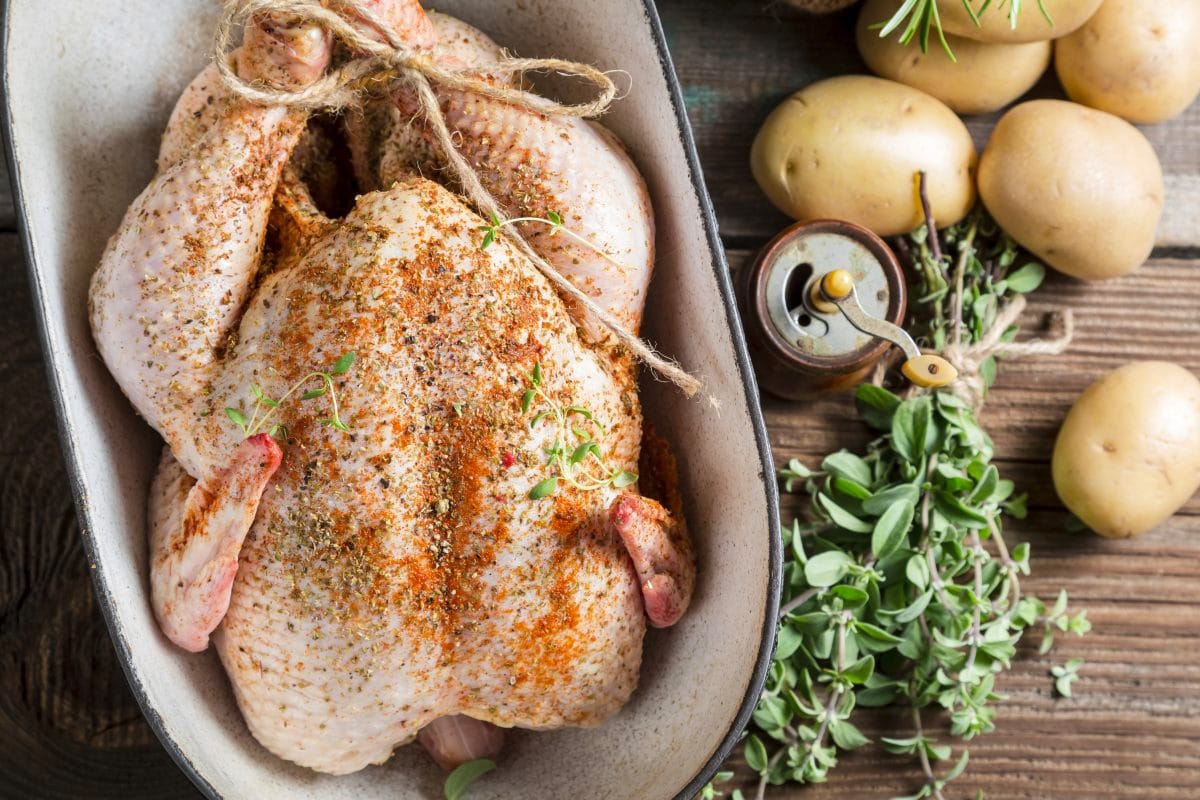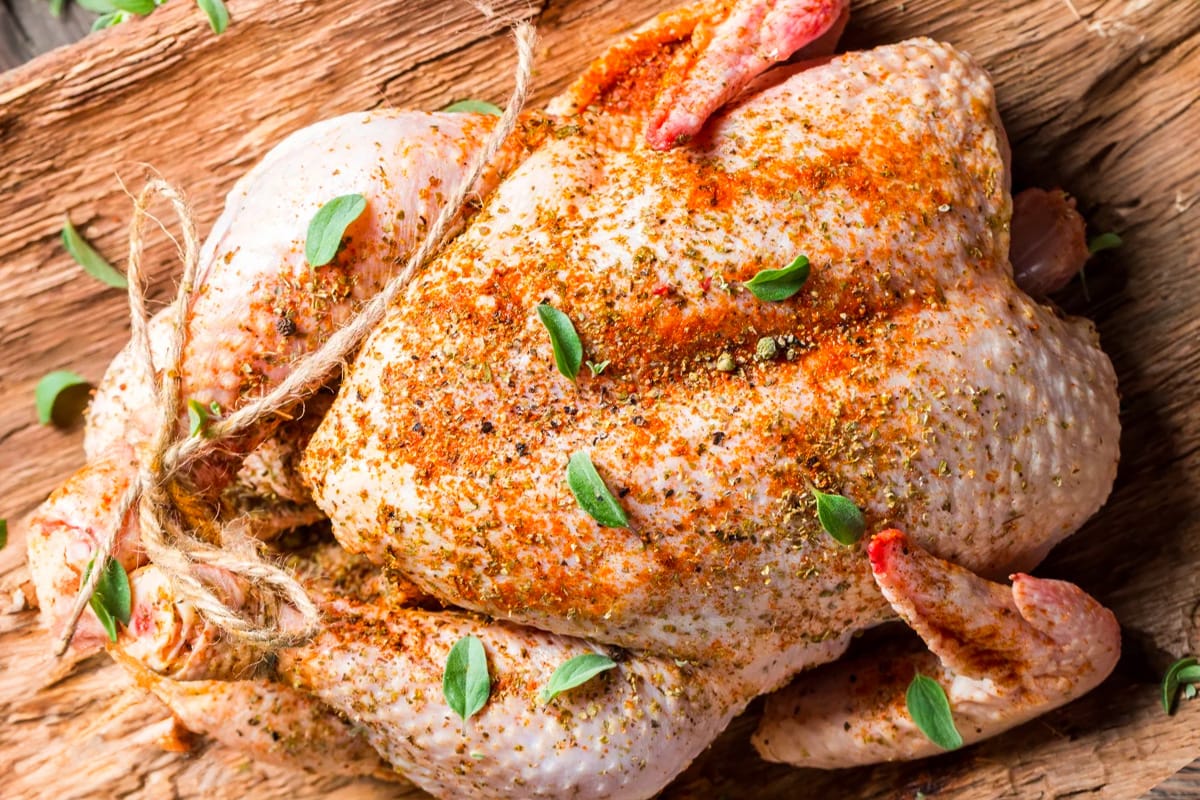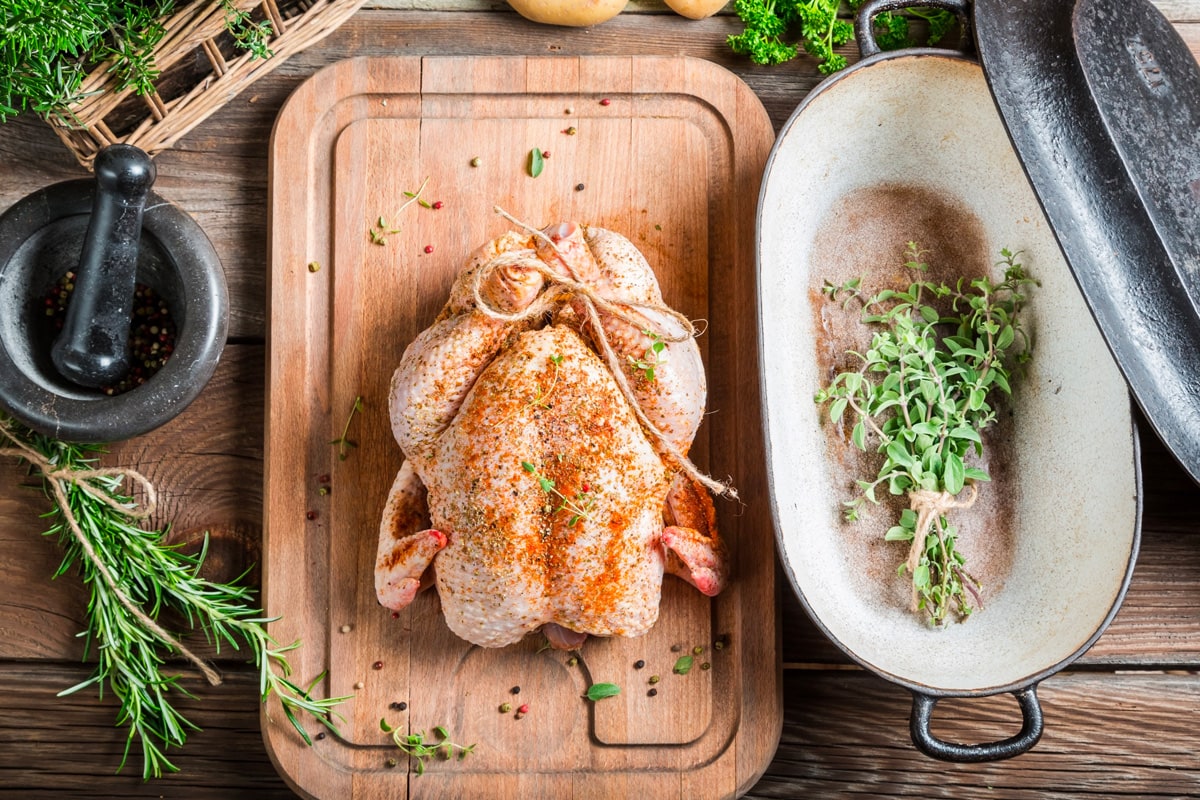When it comes to cooking with herbs, there is a simple rule: Fresh is always best. However, there are times when you may not have fresh herbs on hand, or they may not be in season. In these cases, you may wonder if you can substitute dried herbs for fresh herbs in your recipe. Let’s dive in on what you should pay attention to in those situations.

So, can you substitute fresh herbs with dried alternatives in a turkey roast herb rub? Well, the short answer is yes, you can substitute dried herbs for fresh herbs, but there are a few things you need to keep in mind.
First, dried herbs are more potent than fresh herbs, so you’ll need to use less. As a general rule, you can use about 1/3 to 1/2 the amount of dried herbs as you would fresh herbs.
Second, dried herbs have a different flavor than fresh herbs. While fresh herbs are bright and vibrant, dried herbs are more concentrated and have a deeper, more complex flavor. This means that the flavor of your dish will be slightly different if you use dried herbs instead of fresh herbs.
Finally, not all herbs are created equal when it comes to substitutions. Some herbs, like basil and parsley, are best used fresh, while others, like thyme and rosemary, are more commonly used in their dried form.
To help you navigate herb substitutions, here’s a handy chart that shows you which herbs are best used fresh and which are best used dried:
| Best Used Fresh | Best Used Dried |
|---|---|
| Basil | Oregano |
| Cilantro | Thyme |
| Parsley | Rosemary |
| Dill | Bay Leaves |
| Mint | Sage |
| Chives | Marjoram |
| Tarragon | Savory |
Keep in mind that these are just general guidelines, and you should always use your best judgement when it comes to herb substitutions. With a little experimentation, you’ll be able to find the perfect balance of fresh and dried herbs for your dishes.
Flavor Differences

Besides the fact that fresh herbs have a more potent and vibrant flavor than dried herbs, they have a higher water content, which contributes to their flavor profile.
Dried herbs, on the other hand, have a more concentrated flavor due to the removal of moisture.
However, the flavor of dried herbs can be affected by the length of time they’ve been stored and their exposure to light and air.
Texture Differences
Fresh herbs have a softer and more delicate texture than dried herbs. When used in cooking, they add a nice crunch and freshness to dishes.
Dried herbs, on the other hand, have a more brittle texture and can be easily crushed or ground into a powder.
Color Differences
Fresh herbs have a bright and vibrant color that can enhance the appearance of dishes. Dried herbs, on the other hand, tend to lose their color over time and can appear dull or faded.
Proper Ratios For Substitution
When it comes to substituting dried herbs for fresh herbs in a turkey roast herb rub, it’s important to get the ratios right. Dried herbs are more concentrated than fresh herbs, so you don’t want to use too much and overpower the dish.
Here are some general guidelines for proper substitution ratios:
- Use 1/3 of the amount of dried herbs as you would fresh herbs. For example, if a recipe calls for 3 tablespoons of fresh rosemary, use 1 tablespoon of dried rosemary instead. This rule works only when your dried herbs are fresh and stored properly. Otherwise, this ratio will need to be modified.
- Keep in mind that some herbs are more potent than others. For strong herbs like thyme, sage, and rosemary, you may want to use even less than 1/3 of the fresh amount.
- If you’re unsure about the ratio, start with a smaller amount and taste as you go. You can always add more if needed.
Remember, the key to a delicious herb rub is balance. Don’t be afraid to experiment and find the perfect ratio for your taste buds. Happy cooking!
The Process

Choosing the Right Dried Herbs
When substituting dried herbs for fresh herbs in a turkey rub, it’s important to choose the right ones. Dried herbs are more concentrated than fresh herbs, so you’ll need to use less of them.
Here are some common dried herbs that work well in turkey rubs:
- Sage
- Thyme
- Rosemary
- Oregano
- Basil
- Marjoram
You can use any combination of these herbs to create a flavorful turkey rub. Just keep in mind that a little goes a long way.
Preparing the Rub
To make a turkey rub using dried herbs, start by measuring out the herbs you want to use. You’ll need about half as much dried herbs as you would fresh herbs. For example, if a recipe calls for 2 tablespoons of fresh herbs, you’ll only need 1 tablespoon of dried herbs.
Mix the dried herbs together in a small bowl, along with any other spices or seasonings the recipe calls for. You can also add salt and pepper to taste.
Applying the Rub
Once you’ve prepared the rub, it’s time to apply it to the turkey. Start by patting the turkey dry with paper towels. This will help the rub adhere to the skin.
Next, rub the herb mixture all over the turkey, making sure to get it under the skin and in any crevices. You can also stuff some of the mixture inside the cavity of the turkey for added flavor.
Finally, cover the turkey with plastic wrap and refrigerate it for at least 4 hours, or overnight if possible. This will allow the flavors to meld together and give you a delicious, flavorful turkey.
Additional Tips
When it comes to substituting dried herbs for fresh herbs, it’s important to keep a few things in mind:
Add dried herbs earlier in the cooking process. Dried herbs take longer to release their flavor than fresh herbs, so it’s best to add them earlier in the cooking process. This will give them enough time to infuse the dish with their flavor.
- Crush dried herbs before using them. Crushing dried herbs with your fingers or a mortar and pestle will help release their flavor and aroma. This is especially important if the dried herbs have been sitting on your shelf for a while and have lost some of their potency.
- Experiment with different herb combinations. Don’t be afraid to mix and match different herbs to create your own unique flavor profile. Just remember to use less of each herb if you’re using dried herbs instead of fresh herbs.
Common Mistakes To Avoid

Overuse of Dried Herbs
Using too many dried herbs can result in an overpowering flavor that can ruin your turkey roast. Remember, dried herbs are more concentrated than fresh herbs, so use them sparingly.
Incorrect Storage of Dried Herbs
Storing dried herbs improperly can also lead to a loss of flavor and aroma. Make sure to store your dried herbs in an airtight container in a cool, dark place. Avoid storing them near heat or moisture, as this can cause them to lose their potency.
In addition, make sure to check the expiration date on your dried herbs. Using expired herbs can result in a stale flavor and may even be harmful to your health.
By avoiding these common mistakes, you can ensure that your herb rub for the turkey roast is flavorful and delicious.
Asked Questions:
When Should I Use Dried Herbs and When Should I Use Fresh Herbs?
Generally, dried herbs are more concentrated and potent than fresh and are often preferred in recipes with long cooking times, like turkey roast. Fresh herbs, however, can be used toward the end of cooking or as a garnish to provide a burst of flavor and color.
How Can I Tell if My Dried Herbs Are Still Good to Use?
Dried herbs don’t necessarily go bad, but they can lose flavor over time. If the color has faded or the aroma is weak, it’s likely time to replace them.
What Are the Best Dried Herbs for a Turkey Roast Herb Rub?
Common choices include rosemary, thyme, sage, and marjoram. These robust herbs hold up well under long cooking times and complement the flavors of the turkey.
How Should I Store My Dried and Fresh Herbs?
Store dried herbs in a cool, dark place in airtight containers. Fresh herbs can be refrigerated in a damp paper towel and a plastic bag, or stored upright in a glass of water.

Leave a Reply